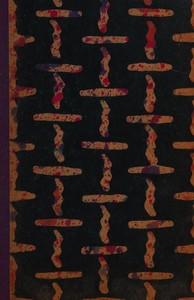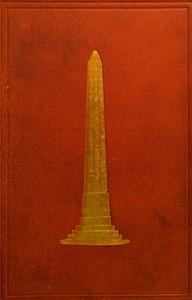|
|
Read this ebook for free! No credit card needed, absolutely nothing to pay.Words: 69355 in 18 pages
This is an ebook sharing website. You can read the uploaded ebooks for free here. No credit cards needed, nothing to pay. If you want to own a digital copy of the ebook, or want to read offline with your favorite ebook-reader, then you can choose to buy and download the ebook.

: Essays and soliloquies by Unamuno Miguel De Flitch J E Crawford John Ernest Crawford Translator - Essays; Spain Civilization@FreeBooksWed 08 Nov, 2023 ESSAYS AND SOLILOQUIES INTRODUCTION No writer ever stood less in need of an introduction than Miguel de Unamuno, for probably none ever revealed himself so naturally and so nakedly in his writings. The identity between the author and the man is absolute. He has a way of putting the whole of himself into all that he writes so that to read him is not merely to learn his views as a philosopher or a publicist, but to know his loves and hates, his hopes and despairs, as a man of flesh and bone. His method of communicating his message is not to address an audience from the elevation of the pulpit or the platform, but to accost the individual face to face, to grasp him warmly by the hand, to look him full in the eyes and tell him what is in his heart. The task of the introducer therefore may be restricted to prefixing to the intimacy so immediately established between reader and author some few notes relative to the latter's history and the background against which he presents himself. In 1880 Unamuno went to Madrid to continue his studies. Passionately attached to his native Bilbao and the wild mountain country in which all his youthful summers had been passed, Unamuno has related how he entered Madrid with tears in his eyes. His spirit never became acclimated to the atmosphere of the capital and the years which he spent there were rendered unhappy by his sense of isolation and home-sickness, preoccupations with ill health, intellectual strain and acute spiritual crises. Having taken his doctor's degree in philosophy and letters, he presented himself as a candidate for a professorship, first in psychology, logic and ethics, and then in metaphysics; but no doubt owing to a certain uncompromising independence of mind and contempt of the conventional curriculum, he failed to obtain the suffrages of the examiners. After two further unsuccessful attempts to obtain a chair in Latin, he was finally appointed to a professorship in Greek by a board presided over by the famous scholar Menendez y Pelayo. After returning to Bilbao, where he married, he took up his residence in Salamanca in 1891. There he conducted two courses of lectures, one on Greek literature, the other on the evolution of the Castilian language, and nine years later, in 1900, he was appointed to the Rectorship of the University. Unamuno has always been possessed of a formidable capacity for work. His scholastic activities, his administrative duties as head of the University, his participation in municipal affairs, absorbed only a portion of his energies. An omnivorous reader, he is familiar not only with the cultures of the ancient world but with all the modern literatures of Europe and America, most of which his extensive knowledge of languages has enabled him to read in the original. But the fertility of his mind and spirit manifested itself above all in a continual stream of creative work, taking the manifold forms of essays, poetry, novels, criticism and philosophy. His career as a publicist coincided with the period following Spain's disastrous war with the United States, during which the fortunes of his country appeared to be at their lowest ebb. Unamuno at once took a foremost place in that group of writers and public men, known as "the generation of '98," who were preoccupied with the problem of national regeneration. Whereas the majority of the regenerationists, however, pointed to "modernization" and "Europeanization" as the only possible path leading to material and cultural progress, Unamuno advocated a return to the eternal tradition of Spain and held that a spiritual renaissance was the necessary pre-condition of her restoration as a world-power. The news of the banishment of one of Spain's foremost writers and patriots was received with a spontaneous outburst of denunciation both at home and abroad. Numerous councils of universities and learned societies in Europe and America passed resolutions of protest; the newspaper press of almost every country published articles by representative literary men condemning the action of the government and testifying to the universality of the esteem which Unamuno had won in the international republic of letters. The Directory was compelled to recognize that the sole result of its act of petty tyranny had been to raise the prestige of its victim and damage its own. A project for the rescue of the exile was secretly organized in France, but its fruition was forestalled by the publication of a decree of amnesty in July, 1924. Unamuno embarked on the sailing-ship which had been dispatched for his deliverance and on arriving at Madeira took ship to Cherbourg. Although free to return to Spain, he felt that under the present r?gime his liberty of action would be too much circumscribed and therefore preferred to take up his residence temporarily in Paris. I well remember how, on the afternoon after my arrival, I was sitting in a caf? on the Plaza Mayor when the door opened and my eyes fell upon the arresting figure of a man half-way through the fifties, clad in a double-breasted blue-serge jacket with a rim of white collar falling over a kind of clerical waistcoat that was void of the usual triangular opening for the display of shirt and necktie, his head crowned by a round parsonical black hat. There was an almost aggressive announcement of bluff health and energy in the erect carriage of the body, the alert set of the head on squared shoulders, the thick brush-like crop of iron-grey hair, the crisp curl of the close-trimmed beard that emphasized rather than masked the firm lines of the jaw, the keen glance behind gold-rimmed spectacles of eyes that gleamed bright and brown like the eyes of a bird of prey. It would have been difficult for one to whom he was a stranger to have guessed his vocation from his appearance. Certainly never was philosopher less sicklied o'er with the pale cast of thought. The tan that bronzed a skin glowing with the flush of health seemed to tell of a life that was spent in the air of the mountains rather than in the study. It could scarcely be doubted that the figure standing there in the doorway was that of a man of action and a fighter. On days of storm or heavy rain, when faint-hearted disciples shrink from the exposure of the open country, the afternoon diversion takes the form of a promenade beneath the arcades of the Plaza Mayor, perhaps the finest square of its kind in Spain, into which towards evening most of the population of the city seems to empty itself. The crowd surges round in two opposing streams, for a time-honoured custom demands that the men shall proceed in one direction and the women in another. Unamuno diversifies the monotony of this promenade by a curious amusement. Having abstracted the crumb from his luncheon roll and kneaded it up into a kind of snowball, he manufactures therefrom a supply of pellets, and these, during the course of his walk, he propels by means of a dexterous flick of the middle finger with deadly accuracy at selected members of the crowd. Whether the principle of selection is based upon friendly interest or personal dislike, or whether indeed there is any principle at all, is a question that must be left undetermined. About dusk he returns home and withdraws to his study, a spacious, lofty square room, the plain workshop of the intellectual worker, furnished only with a large writing-table, a few simple chairs, and crowded bookshelves which not only surround the walls but occupy most of the floor-space. A brazier underneath the table emits from its white ashes a faint warmth scarcely perceptible to ordinary senses. Having refreshed himself with a drink of cold water, Unamuno takes up the work in hand and writes until the hour arrives for the evening meal with his family. The theatre does not attract him--I only saw him present once when Ibsen was being played--and it is very seldom that a social function keeps him from going to bed betimes. Profound as is his attachment to the city which has been his home for over thirty years, Unamuno always welcomes an opportunity to escape from streets and squares into the open country and the mountains. His knowledge of the Peninsula, as his books of travel testify, is both wide and intimate. His visits to the more distant provinces are of course reserved for the vacations, but during term-time his week-ends and the holidays occurring on the seasonal feasts are often spent in the regions of the Sierra de Gredos and the Pe?a de Francia. During these excursions he touches life at a multiplicity of centres and penetrates into all the various social strata. At every stage of the journey--at the railway stations, in the train, at the local club, in the inn, in the village shop or the peasant's cottage--he is usually to be seen at the centre of a group of men, discussing local affairs and politics, inquiring into the technique of trades, saturating himself in the atmosphere of popular thought and belief. His knowledge and love of Spain are thus fed by a familiarity with the inner life of the people, the intra-historical life, as he calls it, the life that flows by unobserved for the most part by politicians and publicists and never agitates the surface of history. The impulse towards action and the exertion of personal influence which forms one of the dominant features of Unamuno's character, finds a considerable part of its expression in his participation in the public affairs of his country. He has little patience with the view that the scholar or professor ought to stand aside from the larger issues of the day in order to devote all his energies to perfecting himself as a machine for grinding out erudition and culture. Indeed, he considers that politics are themselves an invaluable instrument of culture, in that for large masses of the people they provide the principal, perhaps the only avenue of approach to a consideration of general ideas. Devoting himself in his political activities primarily to the exposition of these general ideas, the basic principles of citizenship, Unamuno has always evinced a whole-hearted contempt for that preoccupation with political machinery and an intrigue which tends to make the professional politician, particularly perhaps in Spain, little more than an electioneerer. Unamuno is among the prophets rather than the politicians, and his followers form not a party but a band of disciples. "All round the ring," he said to me once, "sit the spectators. They applaud or hiss. But down in the arena, there I fight alone, face to face with the bull." Perhaps there is no more distinguishing mark of greatness of character than that patience and inner quietude which springs from assurance of the ultimate efficacy of the force latent within the soul. No term had been fixed to Unamuno's banishment; it might have been his fate, for all he knew, to have passed the best of his remaining years in the island wilderness of Fuerteventura. But so far from chafing at his enforced isolation and inaction, he seemed to be sustained by the consciousness that it was beyond the power of circumstances to prevent the work to which he had set his hand from accomplishing itself. Whatever might happen to the sower, the seed that had been scattered would go on bearing fruit. In the plans which his friends had made for his escape he took an uneager and slightly amused interest. A point was fixed not far from the port where it was arranged that between the hours of ten and twelve at night the exile should await a boat that was to carry him to a sailing-vessel lying somewhere off the coast. Owing to unforeseen delays, the vessel did not finally arrive until after the decree of banishment had been rescinded, and consequently many nights were spent in frustrated watching beneath the shadow of a ruined tower standing on a rocky ledge by the shore. These summer nights were breathlessly still, the bright globe of the moon rose up out of the sea into a clear sky thickly silvered with stars, the unrippled surface of the water stretched between the arms of the bay like a sheet of metal. In the distance the green harbour-light at the end of the stone jetty gleamed malignly. The only sound was the gurgling of the water in the hollows of the rocks. The far horizon was void of any vestige of a sail. Twelve o'clock came and the fruitless vigil was broken off. Not wholly fruitless, perhaps, for during these tranquil hours of waiting Unamuno kept a vigil of the spirit, the fruit of which will doubtless appear when the poems of his exile are made known to the world. Free books android app tbrJar TBR JAR Read Free books online gutenberg More posts by @FreeBooks
: Ukraine the land and its people by Rudnytskyi Stepan - Ukraine; Ukrainians@FreeBooksTue 07 Nov, 2023

: Cleopatra's needle by Wilson Erasmus Sir - Obelisks; Cleopatra's Needle (London England)@FreeBooksTue 07 Nov, 2023
|
Terms of Use Stock Market News! © gutenberg.org.in2025 All Rights reserved.






